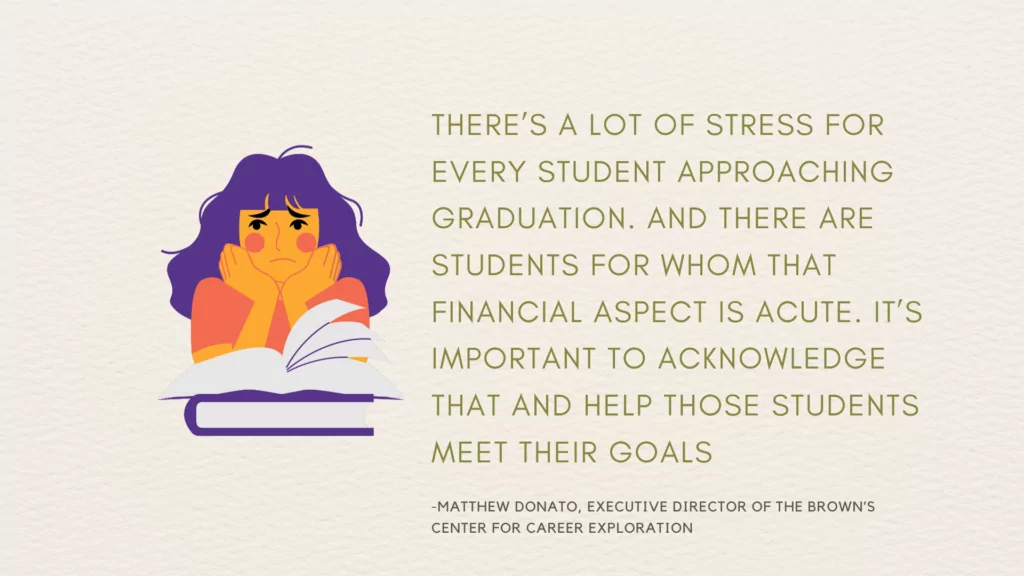According to a recent article by The Hechinger Report, universities have started to increasingly refocus their attention on a critical concern for students: job prospects after graduation. This shift has most evidently come as a response to the growing emphasis on the tangible returns of a college degree.

✅ AI Essay Writer ✅ AI Detector ✅ Plagchecker ✅ Paraphraser
✅ Summarizer ✅ Citation Generator
Key Takeaways
- Universities, including prestigious ones, are expanding and enhancing their career services in response to heightened consumer demand for education that directly leads to employment opportunities.
- This trend reflects a shift in priorities, with institutions recognizing that career preparation is not just an add-on but a fundamental aspect of the college experience.
- The move towards integrating career services into the core curriculum is being driven by the need to address student and parental concerns about post-graduation employment and the return on investment in education.
As the demand for education that leads to specific career paths grows, universities are taking significant steps. Brown University, for instance, has revamped its career center. By doubling its advisory staff and modernizing its resources, the university reflects a sector-wide acknowledgment of the necessity for robust career support. This initiative underscores a new educational paradigm where career readiness is not just an added benefit but a cornerstone of the educational experience.
Changing Perceptions of Career Services
Once viewed as a secondary aspect of college life, career services are now becoming a central focus. Ben Wildavsky, a visiting scholar, comments on this transformation:
“Career services has been sort of a stepchild on campuses. But I think that’s starting to change because of what students want.”
Ben Wildavsky, a visiting scholar at the University of Virginia School of Education and Human Development, an author of the book “The Career Arts: Making the Most of College, Credentials, and Connections.”
This shift aligns with student expectations and market demands, signaling a fundamental change in how higher education views career preparation.
Beyond expanding career centers, universities are weaving career readiness into their academic fabric. Ohio Wesleyan University’s innovative approach includes appointing “career catalysts” in various departments, ensuring that career guidance is a ubiquitous part of the educational journey. This strategy reflects a broader initiative to seamlessly integrate career planning into the academic curriculum, empowering students to recognize and articulate the job skills they gain throughout their education.
Addressing Faculty Perspectives and Student Anxiety

While there is enthusiasm for this shift, not all faculty members agree on the role of career education in academia. However, as student anxiety about job prospects grows, institutions are finding it necessary to adapt. Initiatives like the University of Richmond’s and St. Thomas’ efforts to involve faculty in career-related content creation signal a move towards a more holistic approach to education, one that marries academic learning with career preparation.
Alumni satisfaction and support are also driving this change. Satisfied graduates, who feel their education has contributed to their career success, are more likely to support their alma maters. This link between career services and alumni giving is influencing university administrations to prioritize career readiness.
The Future of Career Services in Higher Education
The shift towards enhanced career services is more than a trend; it’s becoming an essential element of the higher education landscape. As Ben Wildavsky aptly puts it, this sector, once a “stepchild,” is now stepping into the limelight, driven by student demands and market realities. This change signifies a new era in higher education, where preparing students for successful careers is as important as the academic experience itself.
Conclusion
The focus on career services in higher education reflects a necessary adaptation to the evolving expectations of students and the job market. By integrating career readiness into their core missions, universities are not only responding to consumer demand but also ensuring that their graduates are well-prepared for the challenges and opportunities of the modern workforce.
Follow us on Reddit for more insights and updates.





Comments (0)
Welcome to A*Help comments!
We’re all about debate and discussion at A*Help.
We value the diverse opinions of users, so you may find points of view that you don’t agree with. And that’s cool. However, there are certain things we’re not OK with: attempts to manipulate our data in any way, for example, or the posting of discriminative, offensive, hateful, or disparaging material.